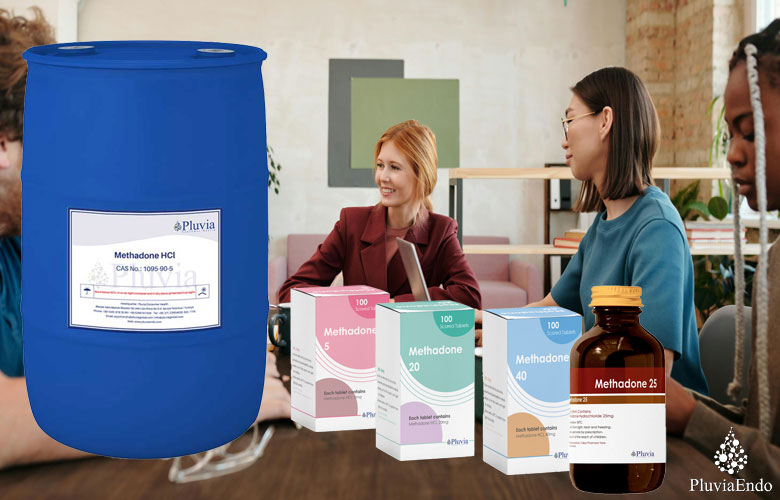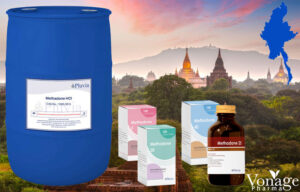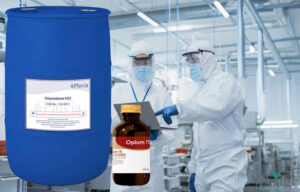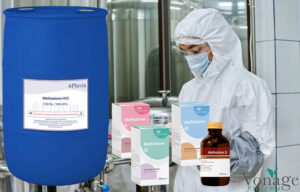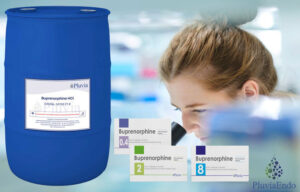Accessing generic methadone remains a significant challenge for many individuals seeking treatment for opioid use disorder (OUD). Despite its proven efficacy, various barriers complicate access, leading to what many describe as a “liquid handcuffs” scenario. This blog post explores the multifaceted challenges in accessing generic methadone, highlighting the role of manufacturers like Pluvia Endo in addressing these issues.
Geographical and Logistical Barriers
One of the most pressing challenges in accessing generic methadone is geographical limitations. Many patients live far from licensed Opioid Treatment Programs (OTPs), which are the only facilities authorized to dispense methadone. This often forces individuals to travel long distances, sometimes requiring daily visits that can be impractical for those with jobs or family responsibilities. In rural areas, the scarcity of clinics means that patients may have to travel hours for treatment, leading to missed doses and potential relapse.
Additionally, logistical issues such as transportation costs can further complicate access. Many patients are unemployed or underemployed, making it difficult to afford daily bus fares or other forms of transportation necessary to reach their treatment facilities. The combination of travel time and costs creates a significant barrier for those seeking help.
Strict Admission Criteria
Another major hurdle is the strict admission criteria enforced by many OTPs. Some clinics only accept individuals who inject opioids, which can lead people to alter their drug use methods just to gain access to treatment. This not only compromises their health but also perpetuates stigma around different forms of drug use. The need for more inclusive policies that accept all forms of opioid use is critical in expanding access to generic methadone.
Stigma and Discrimination
The stigma surrounding addiction and treatment remains a pervasive issue that deters individuals from seeking help. Many patients face discrimination in healthcare settings, which can discourage them from pursuing necessary treatment options. Misconceptions about generic methadone—such as the belief that it is merely substituting one addiction for another—further contribute to this stigma.
The fear of being judged or discriminated against can prevent individuals from accessing care altogether. Additionally, racial and ethnic minorities often face compounded barriers due to systemic inequalities in healthcare access, exacerbating the challenges associated with obtaining generic methadone.
Regulatory Challenges For Generic Methadone
The regulatory environment surrounding generic methadone is another significant barrier. Federal regulations require that methadone be dispensed only through specialized OTPs, which limits its availability compared to other medications like buprenorphine that can be prescribed by primary care providers. This segregation of methadone from mainstream healthcare has led to severe shortages and underutilization despite the ongoing opioid crisis.
Recent changes aimed at reducing some restrictions have been met with resistance from various stakeholders, including OTPs concerned about maintaining control over treatment protocols. While initiatives like those proposed by California state lawmakers aim to allow greater flexibility in prescribing practices, the entrenched regulatory framework continues to pose challenges.
Financial Barriers Of Generic Methadone
Affordability is another critical issue affecting access to generic methadone. While some insurance plans cover methadone treatment, many impose limits on dosage or duration, making it difficult for patients to receive consistent care. Co-pays and out-of-pocket expenses can add up quickly, especially for individuals who require long-term treatment.
Moreover, Medicaid coverage varies significantly by state, often leaving low-income individuals without adequate support for their treatment needs. The financial burden associated with accessing generic methadone can deter many from pursuing necessary care.
Role of Manufacturers like Pluvia Endo
Manufacturers like Pluvia Endo play a vital role in addressing some of these challenges by producing affordable generic methadone options. By ensuring a steady supply of this medication at a lower cost, manufacturers can help alleviate some financial barriers faced by patients. However, simply providing the medication is not enough; comprehensive strategies must be implemented alongside manufacturing efforts. Pluvia Endo produces the API of Methadone and the FDF ones of it to raise the quality of patient treatment including:
- Methadone HCl
- Methadone Hydrochloride 40 mg
- Methadone 20 mg Hydrochloride
- Methadone Hydrochloride 5 mg
These formulations meet various patient needs while ensuring safety and efficacy during treatment.
Pluvia Endo and other manufacturers can collaborate with healthcare providers and policymakers. They should advocate for more inclusive access policies. Additionally, they need to support improved public education campaigns aimed at reducing the stigma surrounding addiction treatment. Their involvement could also extend to supporting initiatives that integrate methadone into broader healthcare settings, making it more accessible.
Conclusion Of Generic Methadone Challenges
Accessing generic methadone remains fraught with challenges that require systemic changes across multiple sectors. Geographical barriers, strict admission criteria, stigma, and regulatory hurdles create significant obstacles. These challenges prevent many individuals from receiving the lifesaving treatment they need for opioid use disorder.
As we continue to confront the opioid crisis, manufacturers like Pluvia Endo need to engage actively in discussions. Improving access to treatment is essential. They must also advocate for policies that dismantle existing barriers. By working together—patients, healthcare providers, policymakers, and manufacturers—we can create a more equitable landscape. This collaboration is essential for those seeking recovery through generic methadone therapy.


